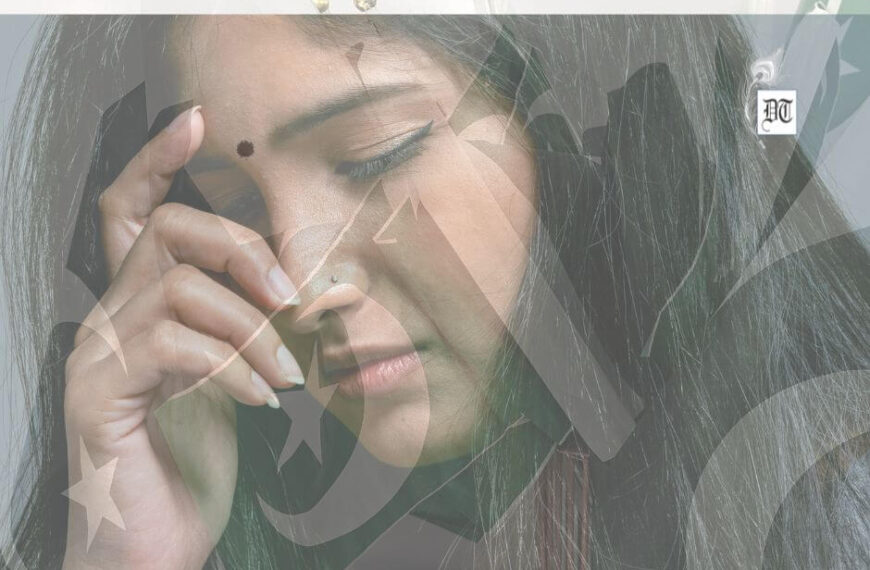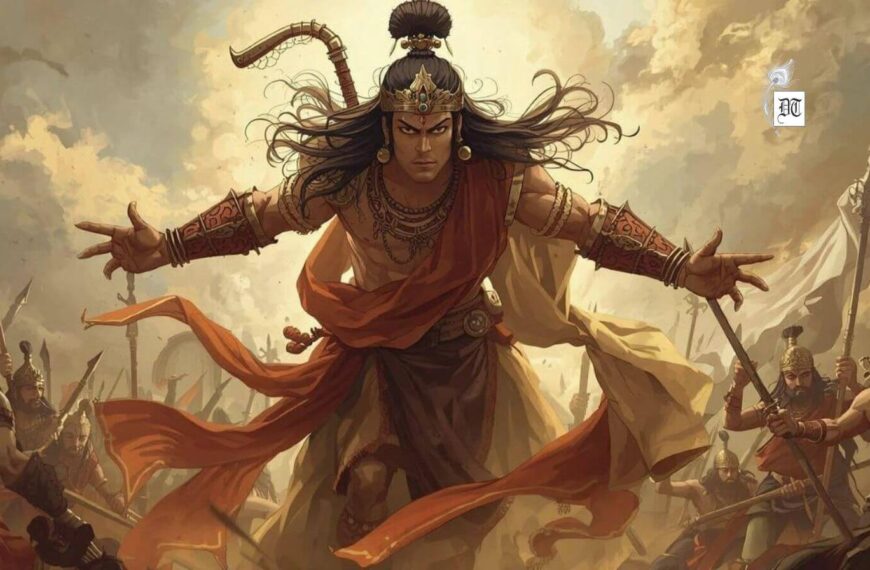PVCHR initiated a campaign for mercy from death penalty 1 . And connected the Shatrughan Chouhan, family member to Human Rights Law Network (HRLN). Shatrughan Chouhan filed petition in Supreme Court. And PVCHR launched an online campaign. Prominent citizens and peoples’ representatives have extended their support after seeing the plight of the dependents of the two convicts, Suresh Chauhan and Ramji Chauhan, awarded death sentence by the Allahabad High Court. Lenin reports the details of the landmark judgement of the Supreme Court, in the weekly column, exclusively for Different Truths.
The President of India under Article 72 of the Constitution, the Governor of a state under Article 161 of the Constitution can commute the death sentence of the prisoners.
On the night of 05.10.1996 Suresh (A-1) along with his brother-in- law Ramji (A-2) brutally murdered his brother Ramesh, his sister-in- law, Ganga Devi, and their three minor children. Seven-year- old Jitender, who witnessed the whole incident, survived the bloody attack. The accused duo allegedly attacked the five deceased with axe and choppers one after another and killed them on the spot. The lone survivor Jitendra had three incised wounds on the scapular region. The motive for the carnage was the greed for a bit of land lying adjacent to the house compound of the deceased which A-1 Suresh claimed to be his. Deceased Ramesh clung to that land and it resulted in burgeoning animosity in the mind of Suresh which eventually grew alarmingly wild.
The accused were convicted under Section 302 IPC and sentenced to death. The conviction was based on the testimony of eye-witness and corroboration by other witnesses and evidences on record.
The Allahabad High Court confirmed their conviction and death sentence. Aggrieved by the impugned judgment of the High Court, both accused preferred appeals in the Supreme Court. The Supreme Court upheld the confirmation of conviction of A-1 and A-2 Responding to the appeal for commutation of the death sentence, the Supreme Court held as under:
Even after bestowing our anxious consideration we cannot persuade ourselves to hold that this is not a rarest of rare cases in which the lesser alternative is unquestionably foreclosed. Both accused filled mercy petitions to the Governor and President of India and the same were rejected. The death-row convicts authorised their family members, viz. Shatruthan Chauhan and Mahinder Chauhan to file an urgent writ petition in the Supreme Court, which was ultimately numbered as Writ Petition in the Supreme Court, which was ultimately numbered as writ petition (crl.) No.55 of 2013.By order dated 06.04.2013; the Supreme Court stayed the execution of the petition of the petitioners. A three-judge bench of the Supreme Court commuted the death sentence of both death-row convicts into life imprisonment holding that undue and unexplained delay in execution is one of the supervening circumstances. The Apex Court held that there was a delay of 12 years in disposal of their mercy petitions.
The only person benefiting from the whole incident is Ram Naresh who is the elder brother of the accused, Suresh, and the deceased, Ramesh. In childhood Ram Naresh had been adopted by paternal uncle, Lalji (PW1), who was issueless. Prior to his death, the father, Late Panalal divided his property between the accused, Suresh, and the deceased, Ramesh only. He did not include the elder son Ram Naresh (adopted by Lalji) since he is the sole inheritor of his adopted father, Lalji’s property. However, after the death of the father, Panalal, the elder brother Ram Naresh demanded share from his two brothers (accused Suresh and deceased Ramesh), which they refused unless Ram Naresh agreed to share with them the property of his adopted father, Lalji (PW1). Now, with Suresh convicted to death sentence, Ramesh dead, and adopted father Lalji (PW1) mysteriously burnt to death, Ram Naresh is the sole claimant/owner of the property of late Lalji and Late Panalal.
The police cannot be trusted as it is widely known and documented that they can be bought and the discrepancies in the FIR and Inquest point to a possibility of cover up and the miscarriage of justice.
Of the accused, Suresh Chauhan is father of seven children, the youngest being 5-year- old with two daughters of marriageable age. He is the bread winner of the family. The future of the children is at stake. There is no one to look after them and if the accused allegation is true than they face possible harassment from their uncle, Ram Naresh. Similarly, Ramji Chauhan is from a very poor family doing business in balloons. In fighting the case, they have sold their belongings, are living in rented homes and struggling to make ends meet. Ramji Chauhan’s wife faces premature widowhood at such a prime age. The whole family has been reduced to brink of ruin.
Prominent citizens and peoples’ representatives have extended their support after seeing the plight of the dependents of the two convicted. They include Shankar Prasad Jaiswaal, MP; Ajay Singh, Ex-Chairperson, National Bal Bhawan; Amarnath Yadav, Nagar Pramukh; Shiv Nath Yadav, MLC; Shamdev Roy Chaudhuri, MLA; Ajay Ray, MLA; Abdul Kalam, MLA; Ajay Kumar Singh, Sabhasad; Dhanno Devi, Sabasad; Ambrish Keshari, Sabhasad, etc.
PVCHR initiated a campaign for mercy from death penalty 2 . And connected the Shatrughan Chouhan, family member to Human Rights Law Network (HRLN). Shatrughan Chouhan filed a petition in Supreme Court. And PVCHR launched an online campaign.
Petition:
Online campaign:
http://www.pvchr.net/2014/01/one-step- against-death- penalty.html
The Supreme Court subsequently in the case of Shatrughan Chouhan ruled, “since the convict has a constitutional right under Article 72 to make a Mercy Petition to the President, he is entitled to be informed in writing of the decision on that Mercy Petition. The rejection of the Mercy Petition by the President should forthwith be communicated to the convict and his family in writing.”
The Supreme Court in number of decisions including in the landmark ruling in Shatrughan Chouhan recognised “the right to seek for mercy under Articles 72/161 of the Constitution is a constitutional right in not at the discretion or whims of the executive.” However, there are legal procedures, which deny this very right of the prisoners.
The Supreme Court in the landmark Shatrughan Chouhan v. Union of India, delivered on January 21, 2014, held, “executive action and the legal procedure adopted to deprive person of life or liberty must be fair, just and reasonable and the protection of Article 21 of the constitution of India inheres in every person, even death-row prisoners, till the very last breath of their lives.’’ In view of the disparities in implementing the already existing laws, the Supreme Court framed the following 12 guidelines for safeguarding the interest of the death row convicts as given below:
However, Shatrughan Chouhan specifically recommended the Government of India to “include delay in disposal of Mercy Petitions as a ground for commutation of death sentence in the existing guidelines considered in deciding mercy petitions. The court stated ‘’we also suggest, in view of the jurisprudential development with regard to delay in execution another criteria may be added so as to require consideration of the delay that may have occurred in disposal of a Mercy Petition.”
In Shatrughan Chouhan, the Supreme Court noted “most of the death-row prisoners are extremely poor and do not have copies of their court papers, judgment, etc. These documents are must for preparation of appeals, mercy petitions and accessing post mercy judicial remedies which are available to the prisoner under Article 21 of the Constitution’’. The Apex Court further noted, “There is no provision in any of the prison manuals for providing legal aid, for preparing appeals or mercy petitions or for accessing judicial remedies after the mercy petition has been rejected. Various judgments of this court have held that legal aid is a fundamental right under Article 21. Since this court has also held that Article 21 rights in here in a convict till his last breath, even after rejection of the mercy petition by the president, the convict can approach a writ court for commutation of the death sentence on the ground of supervening events, if available, and challenge the rejection of the mercy petition and legal aid should be provided to the convict at all stages.”
Supreme Court converted death penalty of Suresh Chauhan and Ramji Chauhan into life imprisonment.
1 http://www.pvchr.net/2009/01/varanasi-report- on-world- day-event.html
2 http://www.pvchr.net/2009/01/varanasi-report- on-world- day-event.html
©Lenin Raghuvanshi
Pix from PVCHR and the Net.
Lenin Raghuvanshi is a Dalit rights activist from India. He is one of the founding members of People’s Vigilance Committee on Human
Rights (PVCHR), which works for the upliftment of the marginalised sections of the society. His work has been recognized with awards like Gwangju Human Rights Award (2007), the ACHA Star Peace award (2008) and the International Human Rights Prize of the city of Weimar (2010). Police brutality and state terrorism enrages Lenin. He works for the upliftment Dalits, particularly the Mushahars.





 By
By
 By
By
 By
By
 By
By